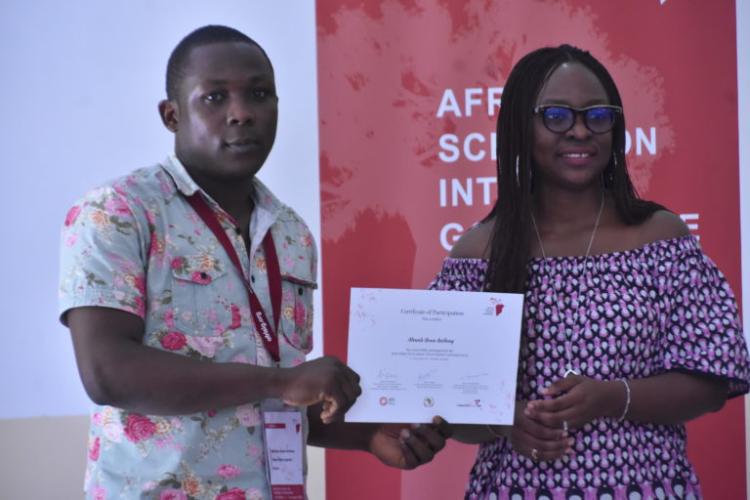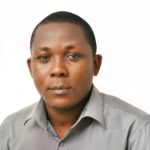
The sixth African School on Internet Governance (AfriSIG), organised by the Association for Progressive Communications (APC) and the African Union Commission (AUC), was attended by 35 fellows and 26 faculty members from different countries who came together for five days to brainstorm, teach, learn, network, dialogue and exchange ideas about issues related to internet governance on a global, regional and local level.
When I got the mail from the AfriSIG organisers confirming that my application was successful, I was super excited. I started packing my bag a week prior to the school. Coming from an information technology background, it was quite easy familiarising myself with the preparatory materials sent by Anriette Esterhuysen, Senior Advisor on Internet Governance, Advocacy and Strategy at APC.
I arrived at Z Ocean Hotel in Zanzibar, Tanzania, the venue of AfriSIG 2018, and was greeted by the welcoming warmth of the island and a cool breeze from the Indian Ocean. Having a day to rest gave me an opportunity to explore the beautiful structures of the Z Ocean Hotel and the surrounding environment, which was full of different types and shades of flowers.
I woke up the next morning to the beautiful sunrise of Zanzibar, feeling energised and ready for the day’s business: the Internet Society’s Collaborative Internet Governance Project Workshop. This two-day pre-workshop, titled “How to Effectively Participate in and Manage Multi-stakeholder Discussion”, was facilitated by Larry Strickling, Executive Director of the Collaborative Governance Project of the Internet Society, and Fiona Asonga, Chief Executive Officer of the Technology Service Providers Association. The workshop was meant to set the pace for AfriSIG and build participants’ negotiation and conflict resolution skills in the context of multi-party consensus decision-making processes.
I played the role of Director of Open Castle, during a workshop problem-solving exercise. Each member of the team seemed to understand their roles and, after a lot of deliberations, which looked like they might end in a stalemate, we were able to reach consensus using the different negotiation approaches taught at the workshop.
Hmm! I must add that I shared a room with the hardworking Tunde Okunoye, Research Officer at Paradigm Initiative, whose attitude to work didn’t offer room for any sloppiness. We also happened to be on the same flight from Nigeria, alongside AfriSIG’s charming photographer, Caleb Ogundele.
The School Setting
The school was structured as a five-day intensive learning and knowledge-sharing event, spanning a wide range of topics including: an overview of internet governance concepts, issues and institutions; internet architecture, infrastructure, standards and protocols and management of internet names and numbers; internet governance and social issues: gender, human rights and development; and cybersecurity, multi-stakeholder approaches and emerging issues in internet governance such as algorithms and the internet of things. The sessions were generally very engaging, interactive and informative, thanks to the excellent guidance of the faculty.
My key takeaway from this experience would be the in-depth knowledge I was able to acquire from the faculty, who were drawn from a pool of leading African and international experts and professionals in the internet governance ecosystem.
In addition, having the chance to develop my negotiation skills during the Collaborative Internet Governance Project Workshop and gain hands-on experience through the practicum as well as try octopus soup and learn a few phrases of Swahili, including asante (thank you) and kidogo kidogo (little by little), gave me lots to brag about back in Nigeria. And of course, interacting and networking with fellows was another treasure I took home with me.
As a stakeholder in the Nigerian internet governance space, I plan to adapt all this knowledge to the Nigerian context and also use it as a tool to impact my work in the digital rights space.
Thanks to all the AfriSIG2018 organisers for giving me the opportunity to attend this year’s school. Asante!
 Idowu is programme officer at Media Rights Agenda (MRA), a Nigerian non-governmental organisation that defends and promotes freedom of expression, freedom of information and digital rights. His experience/interest in internet governance includes but is not limited to policy formulations that address freedom of expression online, access to the internet, awareness raising, surveillance and stakeholders participation. As part of his roles at MRA, he monitors respect for human rights on the internet including freedom of expression, access to information, right to freedom of assembly, association, and privacy.
Idowu is programme officer at Media Rights Agenda (MRA), a Nigerian non-governmental organisation that defends and promotes freedom of expression, freedom of information and digital rights. His experience/interest in internet governance includes but is not limited to policy formulations that address freedom of expression online, access to the internet, awareness raising, surveillance and stakeholders participation. As part of his roles at MRA, he monitors respect for human rights on the internet including freedom of expression, access to information, right to freedom of assembly, association, and privacy.
